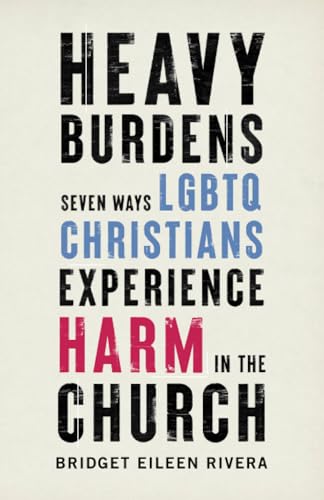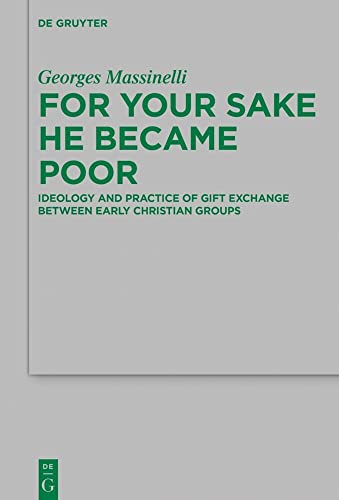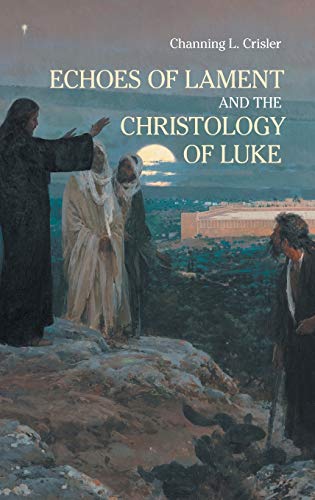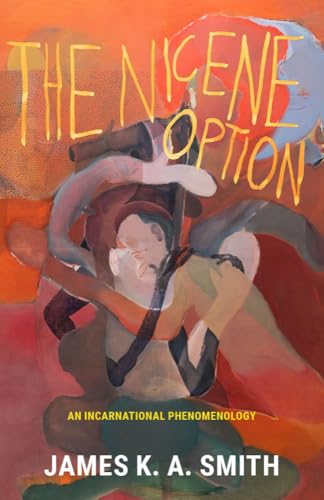Heavy Burdens: Seven Ways LGBTQ Christians Experience Harm in the Church
Written by Bridget Eileen Rivera Reviewed By Danielle TreweekIn one sense, Bridget Eileen Rivera’s Heavy Burdens is exactly what its subtitle claims: an exploration of Seven Ways LGBTQ Christians Experience Harm in the Church. But in another sense, this book seeks to do much more. Put simply, Heavy Burdens endeavors to present a new paradigm for the church’s theological reflection upon and ethical response to the important but also contentious issues of sexuality and gender.
Several internal and external factors make this a difficult book to review. To use the author’s preferred language, this is a book about the experience of gay, lesbian, bisexual, and transgender American Christians. I, however, am a female, never-married, opposite-sex attracted, Australian Christian. Such contextual distinctions have significant implications for the reader. Another complicating factor lies in the amount of ground Rivera attempts to cover. Her explorations—ranging from Ancient Roman cultural mores to Freudian sexual theory, from evolutionary insect biology to present-day queer theory—demonstrate that she is very well-read. However, the overcrowding of her argument left me with the sense of constantly rushing from one significant matter to the next, with little opportunity to absorb, discern and question along the way. As a result of these and other complexities, this review will provide some commentary on the book’s main rhetorical strengths and weaknesses, while primarily focusing on the author’s essential methodological—and indeed, theological—moves.
As a theologian and Christian historian with particular interests in the fields of singleness, sexuality, and anthropology, I found Rivera’s historical analysis of the Reformation’s legacy on these matters to be especially masterful. She expertly recounts how the “reformers introduced new assumptions to the Christian imagination—sex and sexuality as integral to human identity; celibacy as unnatural; marriage as a human right; pursuit of marriage for romantic love” (pp. 32–33). In doing so, she skillfully demonstrates the extent to which contemporary Protestantism’s questionable preoccupation with these things is equally the result of our theological inheritance as it is of a pervasive secular influence.
Another of the book’s strengths lies in the power of its many personal testimonies, narratives and anecdotes. Rivera is eminently successful in persuading the reader to a much deeper understanding of the trauma, distress, isolation, and grief that have come to bear unfairly upon many same-sex attracted and gender dysphoric Christians. I found myself gasping in horror, shock, and outrage on multiple occasions. Many of the stories brought me deep sadness, sorrow, and despair. Heavy Burdens rightly confronts the reader with the failure of God’s people to have consistently and comprehensively loved many of our brothers and sisters in Christ. It compels the contemporary Christian to reckon with our past, seek forgiveness in the present, and commit to change in our future.
And yet, it is also at this precise point that one of the book’s chief weaknesses is exposed. The rhetorical usefulness of personal narrative lies in its profoundly persuasive and emotive pull. However, there is a flip side to this stylistic device—namely, the temptation for an author to absolutize specific personal stories for the sake of their argument. Unfortunately, this is an enticement that Rivera regularly proves herself unable or unwilling to resist. Such a conclusion is evidenced not only by the stories she includes but also by those she excludes. A particularly illustrative example of this is found in her recounting of two pastors’ heinous responses to the 2016 Pulse nightclub massacre, both of which are cited as proof that “the gay folk devil remains a compelling and powerful illusion in the imagination of Christians today” (p. 82). While such a conclusion is undoubtedly justified by the imagination of those two particular men, what of all the other Christians who lamented, cried, prayed, and mourned over that evil and its horror? Why are their stories rendered invisible in Rivera’s retelling? On what basis are these men and women guilty of perpetuating the gay folk devil delusion and perhaps even of contributing to “the context in which LGBTQ people simply cannot access life-giving Christianity” (p. 192)?
At other points, the author unhelpfully distorts or conflates concepts. For instance, Rivera eagerly expands the definition of gender essentialism from the fundamental conviction that men and women are biologically different, into the systematic “dehumanizing” of people based on their gender—e.g., essentialism says that women can’t be good at math (p. 150). Concrete examples from specific American evangelical contexts are frequently depicted as being obviously representative of the Western church, Western evangelicalism, or Western Christianity as a whole. Other inconsistencies and imprecisions occur in discussions about sexual pathology, desire, orientation and identity, and discourse on transgender and intersex experiences.
However, it is essential to realize that the author’s trend towards ambiguity and absolutizing is neither accidental nor the result of poor argumentation. Instead, it is necessary to the book’s foundational methodological move—namely, an intentional trajectory away from assumed clarity about sexuality and gender and towards embracing confusion and mystery in these matters. This is perhaps the key to understanding the argument of Heavy Burdens. And yet it is also easily missed within the dynamic environment of the book’s storytelling. As such, it requires both attentive reading and careful analysis.
In chapter 4, we are introduced to Camilla, a woman who has never experienced any sexual attraction (and who therefore identifies as asexual) but whose “relationship to herself [is] as a lesbian” (p. 55). Rivera seeks to dispel any potential confusion amongst readers concerning Camilla’s self-identification. She contends that being gay or lesbian “might describe sexual attraction but not necessarily (asexual people like Camilla can be just as gay as RuPaul)” (p. 60). This curious negation of same-sex sexual attraction as an essential component of “being gay” strikes me as a distinctively recent (Christian?) redefinition of the concept itself. Prominent secular gay rights figures such as Andrew Sullivan would seemingly critique Rivera’s conclusion, speaking as they do of “gay men [being] defined by our attraction to our own biological sex” (“The Nature of Sex,” Intelligencer, 1 February 2019, https://tinyurl.com/y3c8bzk3).
Nevertheless, Rivera is confident that to be gay (or lesbian) does not necessarily entail the experience of sexual attraction to one’s own sex but describes a “broader relational experience … that impacts everything about how any person relates to the world” (p. 60). In this sense, being gay “evades reductionism” (p. 60) and is well encapsulated by the term “queer.” Queer people are those who provocatively and confoundingly “reimagine things in ways that straight and cisgender people can’t” (p. 61).
This is where Rivera’s move from clarity to confusion comes into starkest relief. In broader secular discourse, to be queer means to be human in a way that intentionally defies definition. However, in the theological discourse of this book, being queer means to be a self-determining human being. This is aptly demonstrated through Rivera’s assertion that the only way we can know the who of someone’s identity is by talking to that human person (p. 156). Or, to use a more specific example, it is demonstrated in “believing a person when they tell us their gender instead of assuming that you or I or a microscope in a lab know better” (p. 201).
The importance of this assertion is crucial for understanding the methodological and, indeed, the theological argument of Heavy Burdens. What it means for someone to have been made in the image of God is seen to be primarily grounded in that person’s unique understanding of their individual humanity, rather than in God’s natural or special revelation about our shared humanity. In this sense, the individual becomes their own authoritative theological anthropologist. Determining what it means to be human is no longer a collective endeavor, belonging to the entire ecclesial community and undertaken in the context of our corporate relationship with God. Instead, it becomes a private endeavor, belonging to the individual and lying beyond the reaches of external analysis and appraisal. According to Rivera, what it means to be human defies shared theological clarity and instead embraces mystery.
This leads her to posit a two-fold hamartiological genus: namely, that there are sins of violence and sins of conscience (p. 173). The former sins (such as murder, rape, abuse, etc.) are easily recognizable and rightly condemned by all. There is a legitimate and standard “right” way to think about these sins. However, Rivera’s sins of conscience relate to an individual’s unique sense of how to embody their own humanity within a discretely personal relationship with God. As such, there can be no common objective “right-thinking” about these things. They are “inherently messy and confusing” (p. 173).
Furthermore, because sins of conscience are profoundly personal and private, they are not open to being scrutinized by other people. This leads Rivera to position grappling with godliness in areas of sexuality and gender as something individuals need to work out for themselves “regardless of the convictions that others might have about the same questions in their own lives” (p. 188). Otherwise put, we should “worry about the sin in our own lives, instead of trying to condemn others for the sins that look ‘clear’ to us” (p. 170).
So it is that Heavy Burdens concludes by envisaging a future “better way” in which all Christians might be able to stand united, even as they believe very different things about gender, sexuality, sin, and sanctification. This better way entails theological anthropology and its ethical application to be a singly personal task rather than a publicly joint endeavor. It requires giving those who identify as LGBTQ exclusive space to work out their own answers on their own terms, rather than insisting that they “need to get gender and sexuality ‘right’ in order to win God’s love” (p. 164). It means ensuring our theological and ethical convictions are a “yardstick for ourselves, not others” (p. 194). To explain the practical force of this, Rivera uses a personal example relating to her own singleness and celibacy:
For myself, as I’ve journeyed with Jesus, I’ve found a traditional approach to sexual ethics to be compelling and am celibate as a result. In addition … I’ve also found celibacy to be life-giving. That doesn’t give me the right to legislate my journey upon the rest of the church … [Why] should my own pursuit of holiness take other people captive? (p. 195, emphasis original)
At the beginning of this review, I contended that Heavy Burdens offers a new paradigm of theological and ethical reflection about the crucial contemporary matters of sexuality and gender. We have seen that the proposed paradigm removes complex consideration about same-sex attraction and gender dysphoria from the common life and mind of the whole body of Christ and instead sequesters it as the privilege and responsibility of those Christians who describe themselves as queer. Unfortunately, such a paradigm is grounded in deeply flawed ecclesiological, anthropological, hamartiological and hermeneutical principles.
Rivera’s paradigm also has implications for the integrity of her own argument. In one and the same paragraph, she explains how her approach requires Christians to “embrace that process [of conversation and examination] together for the sake of a healthier church” (emphasis added) while simultaneously insisting that we put “in check this fallen human tendency to scrutinize” others (p. 138, emphasis added). Given that the critical argument of her book—that the church has unfairly and unlovingly burdened “LGBTQ Christians”—is wholly reliant upon her entirely appropriate scrutiny of others’ actions and behaviors, it is difficult to see how her methodology is not either internally inconsistent or self-selectively applicable.
Heavy Burdens is an important book. It is important because it powerfully compels Christians to reckon with any sinful attitudes and actions towards LGBTQ people, humbly seek forgiveness, and prayerfully commit to enacting loving change. However, it is also important because it discloses the increasingly powerful gravitational trajectory of contemporary theological and ethical reflection about sexuality and gender away from the common life of the body of Christ and towards the subjectivity of the individual. This too is a very heavy, long enduring, and deeply destructive burden for any and all of us to bear.
Danielle Treweek
Danielle Treweek
St Stephen’s Anglican Church Newtown
New South Wales, Australia
Other Articles in this Issue
This article examines Christopher Nolan’s three most recent films, Interstellar (2014), Dunkirk (2017), and Tenet (2020), through the lens of Christianity’s preeminent theological virtues: love, hope, and faith, respectively...
Syncretism—the blending of two or more religious paradigms—threatens Christian witness around the world...
Revisiting “the Time of Abiathar the High Priest”: Interpretation, Methodology and Ways Forward for Understanding Mark 2:26
by William B. BowesMark 2:26 has presented itself as a difficult textual and historical problem for interpreters...
Give Honor and Vote? A Reflection on the Christian’s Voting Conscience and Romans 13:1–7
by Robert GoldingPaul’s instruction in Romans 13:1–7 can be applied to Christian voting behavior in the West...
Hell for a Single Sin: A Response to Robert Golding’s Asymptotic Theory of Those in Hell
by Paul DirksThis article is a response to Robert Golding’s recent essay, “Making Sense of Hell,” in which he contends for the logic of eternal punishment on the basis of a progressive and asymptotic conception of sin and sinners in hell...






